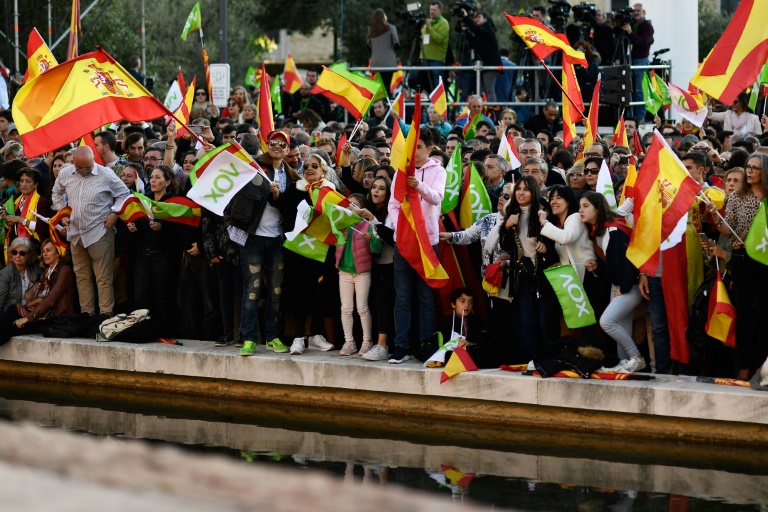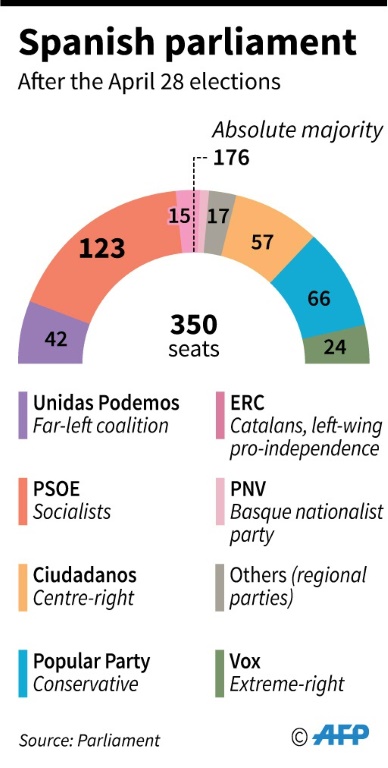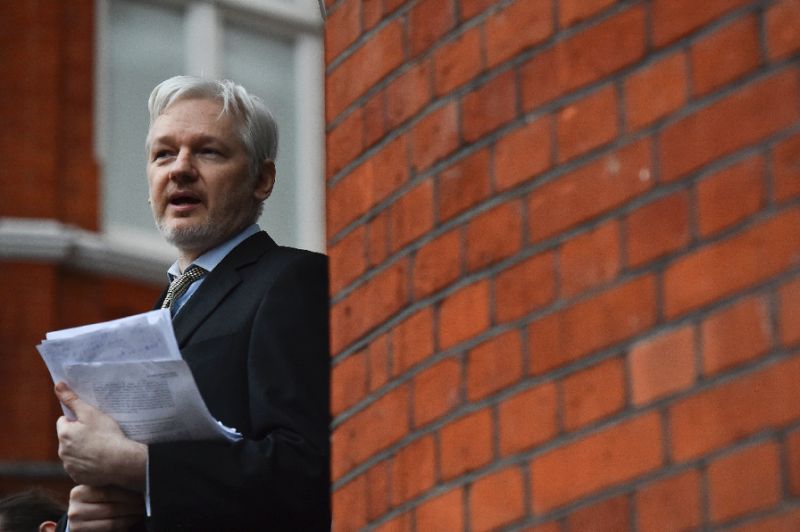As the results of Spain’s snap election poured in on Sunday night, the most heard slogan from parties of the left was the internationally famous ¡No Pasarán! (they shall not pass) coined during the fight against fascism at times of the Spanish Civil War.
The general election came in the context of the first real emergence of an extreme right formation, which broke through in regional elections in Andalusia just four months earlier. While the far-right Vox party entered the Spanish parliament for the first time, obtaining 10 percent of the votes and 24 seats, its breakthrough was more modest than expected.
One of Spain’s highest ever turnouts since the return of democracy in the 1970s, at 75 percent, saw a clear mobilization of liberal and leftist Spain to block a potential rightist coalition. This right alliance was to include Spain’s two mainstream right parties, allying with the far-right Vox. However, the combined forces of the Spanish right fell well short of forming a government, totaling 43 percent of total votes cast, with the Partido Popular losing half of its seats and votes. Plural Spain represented some 52 percent of voters.
Spanish Society
The latest Spanish election was widely interpreted as an opportunity to communicate the type of society that Spaniards wish to see in the following years. The choice was framed as between a Spain that is open, plural, and comfortable with diversity or a Spain that closes in on itself, seeking to reduce rights for minorities and exhibiting intolerant nationalism.
This battle is one that is being played out in many western societies and Spaniards gave a clear message on Sunday: tolerance, openness, and dialogue around political difference. For now, the hard-right populist tide has been held back.
Spain’s Democratic System
For the first time, conservative features of Spain’s democratic system favored the left. The electoral system designed in the late 1970s benefitted rural over urban voters and rewarded unity over fragmentation. For most of the time since 1977, conservatives clearly benefitted from this inbuilt bias.
However, this time the Spanish right was fragmented across three parties, and this internal division facilitated the victory of plural Spain. The emergence of the far-right Vox saw Spain’s right parties radicalize to prevent losses but this shift rightwards also opened up the center ground to the social democrats of the PSOE.
The principal political battle to watch in the coming years will be to see who emerges strongest across the Spanish right. This internal division and the battle for supremacy on the right is new, and it might just allow for progressive governments in Spain for many years.
Given its character as an election framed around values rather policy, this was a campaign heavy on emotion, with very little debate around more traditional bread and butter issues. Spain is still recovering from a deep economic crisis and austerity, but these issues remained peripheral. Spanish national unity, rights for women, and the question of immigration were high profile non-economic issues.
Catalonia
Spain continues to face a national crisis around the question of Catalan secession. The attempted break from Spain in October 2017, though in practice more rhetorical than real, remains the greatest current issue of Spanish democracy.
Spain’s rightists explicitly campaigned on a strategy of suspending Catalan autonomy and re-imposing central rule from Madrid. The Catalan challenge was to be met by a belligerent response. This threat produced an exceptionally high turnout in Catalonia.
The failure to achieve Catalan independence in the autumn of 2017 has also produced contrasting responses amongst the two main pro-independence parties. The center-left Esquerra won a clear victory on Sunday and support for its program of building greater social support for independence. The neo-liberals and hard-line nationalists centered around former president of Catalonia Carles Puigdemont suffered a major defeat, and the new Spanish government can happily ignore this faction.

The electoral results overall provide a real opportunity to find a solution to the Catalan question. Yet this also poses dangers as any negotiated solution in the years to come will be used by the Spanish right to claim that national unity is being betrayed.
For the moment, the limits to the apocalyptic messages of Spanish conservatism have been revealed. The forward march of the extreme right has been halted.
Disclaimer: The views and opinions expressed here are those of the author and do not necessarily reflect the editorial position of The Globe Post.





















